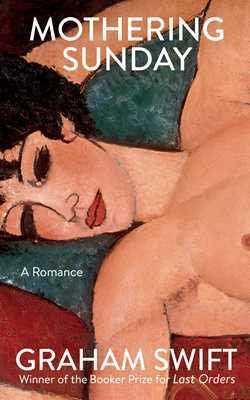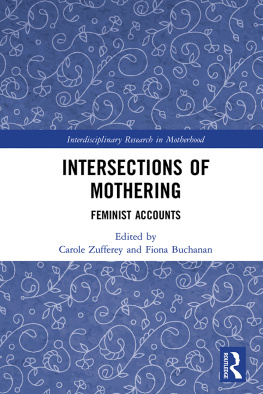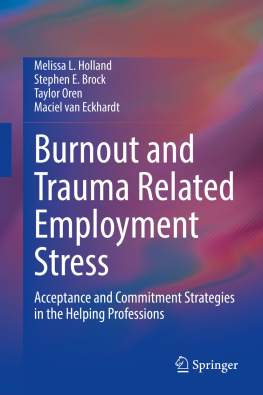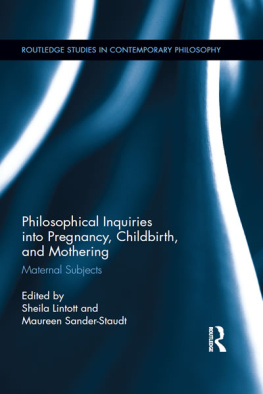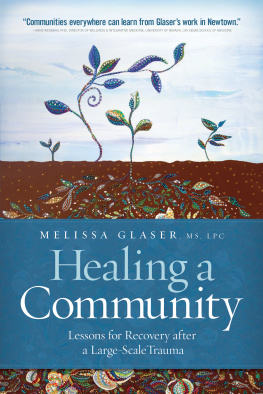
Philosophical Reflections on Mothering in Trauma
Philosophical Reflections on Mothering in Trauma examines the lived experience of mothering children who have been seriously harmed by others. Using an interdisciplinary approach, that employs a feminist phenomenology and an emphasis on narrative theory, this ground-breaking work gives voice to experiences of trauma, and of mothering, not ordinarily heard in philosophical discourses.
With a philosophical lens, Melissa Burchard examines the challenges faced by families during the adoption and parenting of abused children. In doing so, Burchard argues that the investigation of traumatic experience poses questions that philosophers must address if we are to improve collective understanding of the human condition. These questions centre around the epistemological implications of traumatic experience, the role of power and privilege in abusive relationships, and the interconnected issues of morality and moral agency in trauma, problematic desires engendered in traumatic circumstances, and therapeutic responses to trauma. The book expresses ways in which mothering wounded children can, if we are deeply engaged and reflective, shift our understandings of what it means to be parents, to be children, to love, to know, to construct a self, to feel desire, to nurture, to coerce, and to live in the ambiguity of not knowing which decisions are right and which are wrong.
Melissa Burchard is Professor of Philosophy at the University of North Carolina Asheville. Her research interests include issues in care ethics, mothering and ethical issues in popular culture, especially childrens literature and film. Relevant publications include Whats an Adoptive Mother to Do? When Your Childs Desires Are a Problem in Coming to Life: Philosophies of Pregnancy, Childbirth and Mothering (2012), and Not a Matter of Will: A Narrative and Cross-Cultural Exploration of Maternal Ambivalence with Keya Maitra in Lived Experiences of Women in Academia: Metaphors, Manifestoes and Memoir (2018).
Philosophical Reflections on Mothering in Trauma
Melissa Burchard
First published 2019
by Routledge
2 Park Square, Milton Park, Abingdon, Oxon OX14 4RN
and by Routledge
711 Third Avenue, New York, NY 10017
Routledge is an imprint of the Taylor & Francis Group, an informa business
2019 Melissa Burchard
The right of Melissa Burchard to be identified as author of this work has been asserted by her in accordance with sections 77 and 78 of the Copyright, Designs and Patents Act 1988.
All rights reserved. No part of this book may be reprinted or reproduced or utilised in any form or by any electronic, mechanical, or other means, now known or hereafter invented, including photocopying and recording, or in any information storage or retrieval system, without permission in writing from the publishers.
Trademark notice: Product or corporate names may be trademarks or registered trademarks, and are used only for identification and explanation without intent to infringe.
British Library Cataloguing in Publication Data
A catalogue record for this book is available from the British Library
Library of Congress Cataloging in Publication Data
Names: Burchard, Melissa, author.
Title: Philosophical reflections on mothering in trauma / Melissa Burchard.
Description: London ; New York : Routledge, 2018. | Includes index.
Identifiers: LCCN 2018004000| ISBN 9781138299771 (hbk : alk. paper) | ISBN 9781315097893 (ebk)
Subjects: LCSH: Traumatism--Treatment--Moral and ethical aspects.. | Child rearing--Moral and ethical aspects. | Parenting--Moral and ethical aspects.
Classification: LCC RA645.T73 B87 2018 | DDC 173--dc23
LC record available at https://lccn.loc.gov/2018004000
ISBN: 978-1-138-29977-1 (hbk)
ISBN: 978-1-315-09789-3 (ebk)
For Wesley and Justin: Children no longer, yet always and forever my beloved children.
I will not save the best for last. The deepest debts I have are owed to those dearest to me: my partner Erik Parsels, who is the stable rock I stand on (and has the shoulder I cry on), and my precious sons Wesley and Justin. My siblings have supported me through thick and thin, especially my sisters Denise Burchard and Tracey Burchard, my brother Norman Burchard and my sibling-in-law Kristy Burchard. I can never thank you enough.
The support I have had from friends has been both personal and professional, as many are colleagues as well. I thank the staff of Professional Parenting for helping us find our boys, helping us through the training, paperwork and adjustment period, and for the tremendous post-adoption support. I am grateful to all the therapeutic support professionals we have worked with, without whose help and advice we would have made so many more mistakes. Department colleagues, especially Brian Butler and Keya Maitra, have been trusted sounding boards for years, listening with compassion and forbearance to complaints and frustrations and helping me through seemingly endless crises as well as encouraging my belief that this is important philosophical work. Peg OConnor, Abby Wilkerson and Lisa Heldke helped greatly with the development of my thinking about these issues as we presented together on panels at many conferences over the years, and I thank them for comments on chapters as well. I cannot imagine how I would have finished, or even begun, this work without the support of my writing group: Amy Lanou, Leah Mathews, Karin Peterson and Alice Weldon. They have read more of this work than anyone else, and it is so much better for their support and feedback. Christian Matheis also read a chapter for me, and my former student Carmelo Pampillonio read several. Although I cannot possibly mention all the people who have supported us as a family, and me specifically in this work, I am grateful for the generosity of you all.
I have also benefited from feedback received on versions of chapters presented at several conferences. Audiences at Radical Philosophy Association, Feminist Ethics and Social Theory, and Society for Philosophy in the Contemporary World conferences have been wonderfully supportive and helpful. I also appreciate the comments of anonymous reviewers, and thank them for their thoughtful and encouraging words.
I thank the University of North Carolina Asheville especially for granting me a professional development leave that enabled me to draft several chapters, and got me over the hump and on the way towards finishing. Thanks also to Kitty Imbert and Alexandra McGregor at Taylor and Francis for their help in the publication process. Finally, I am grateful to all those whose work has informed my own, from the many, many philosophers, to the trauma therapists and specialists, to the creators and critics of popular culture stories. I owe you all a great debt, and of course, any mistakes made here regarding either your work or mine are entirely my own.
Our two sons, biological siblings, came to live with us when they were still in the custody of the Department of Social Services. They had been removed from their birth family due to a serious and long history of domestic violence, neglect and abuse. Our intention from the beginning was to adopt them, but it was almost a year and a half before the legal process of terminating the biological parents custody rights was completed.




